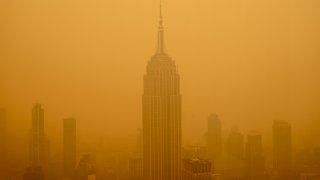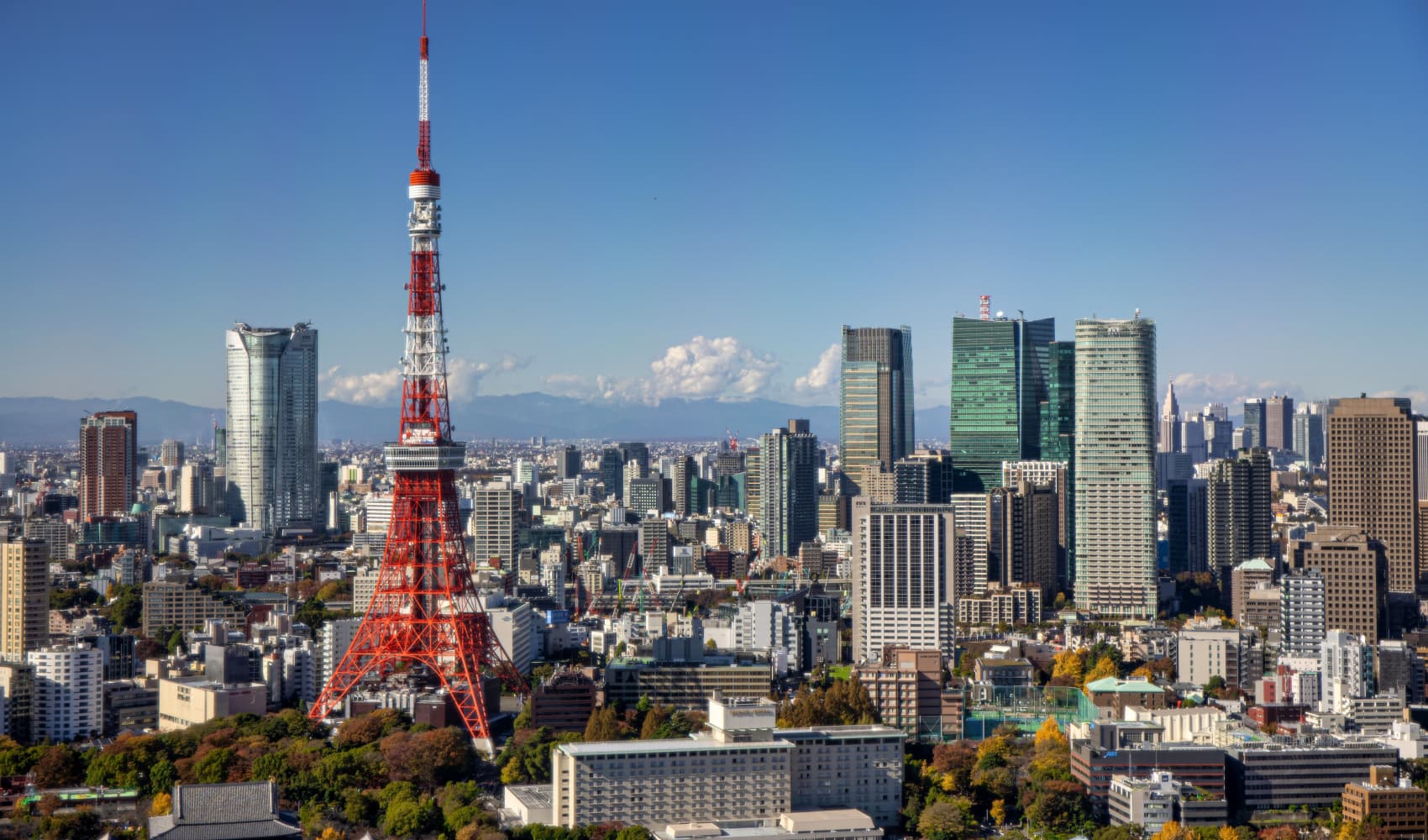
On Wednesday, the streets were emptier in midtown Manhattan with many employees working from home due to the dangerous air quality brought on by Canada's wildfires.
But some like Josh Wood, a 25-year-old delivery worker for Uber Eats, had to remain outside for an eight-hour workday — his job, like many others, requires it.
"New York City is supposed to be busy. When we're the only ones on the street, it's usually for a reason," Wood tells CNBC Make It. "A lot of people have the luxury of staying home, but we don't get that option ... It's an ominous feeling."
Wood bikes an average of 40 to 50 miles a day shepherding food and other products to people's doorsteps. After finishing his deliveries at 6 p.m. on Tuesday, he went home and immediately fell asleep, exhausted from the physical tax of the smoke. The next day, he woke up and did another full day of work outside, despite the city's record-setting poor air quality and a noticeable toll on his lungs.
Get Tri-state area news and weather forecasts to your inbox. Sign up for NBC New York newsletters.
"It's always been a key to being able to actually make a living off of these [delivery] apps. You have to be willing to work in the weather conditions that nobody else wants to work in," Wood says.
'It's not the first time'
Los Deliveristas Unidos, a New York-based advocacy group working to secure labor protections for app delivery workers, advised its members to stay home on Wednesday, though it knew that was not possible for many.
Money Report
"Many food delivery workers cannot afford to stay home because they rely on tips to make ends meet and provide for their families," says Ligia Guallpa, the executive director of the Workers' Justice Project, which created Los Deliveristas Unidos in 2020. "It is not the first time they have been at the frontlines, ensuring the safety of New Yorkers by allowing them to stay indoors."
Wood said that this week on the job was reminiscent of the peak of the pandemic when he also had to ignore the public safety mandate to stay indoors.
Delivery workers are among the many kinds of jobs that require outdoor labor. Construction workers, landscapers and highway maintenance laborers, for example, have to spend the majority of their day outside, according to the Bureau of Labor Statistics.
As the climate changes, bringing extreme weather more frequently, it could mean more unsafe work environments for those who cannot hunker down to do their jobs from home.
Putting 'your body on the line'
Places like California, where wildfires have become increasingly common, have implemented emergency regulations to protect outdoor workers from the toxic air that wildfires leave behind. When the air quality gets bad enough, it requires employers to provide protective equipment to workers, for instance.
"These kinds of health and safety regulations for workers are always put into place and then refined over time with more time, more experience," says Sandra Giarde, executive director of the California Landscape Contractors Association.
So far though, wildfire protections for East Coast outdoor workers are trailing the West Coast, according to Bruce Rolfsen, reporting for Bloomberg Law.
"If the state rules had been in effect for the Eastern Seaboard this week, employers could have been forced to provide free N95 respirators to their outdoor workers and take other precautions," Rolfsen wrote on Thursday.
But even if the West Coast's workplace safety laws traveled eastward, they may still not have covered workers like Wood who are classified as independent contractors and therefore often do not receive the same labor protections.
Wood says that free personal protective equipment would have made a difference. But he also notes that the wildfire smoke is just one example of many difficult working environments that outdoor workers like food delivery bikers endure. From blizzards to pandemics, Wood is usually outside when no one else finds it safe to be.
"I want things like this week to highlight that this job is always filled with bad working conditions," says Wood.
As extreme weather gets more frequent, he says the only real safeguard to protect outdoor workers like himself is to guarantee livable minimum wages so that they do not feel pressured "to put your body on the line to maybe get a little extra money."
DON'T MISS: Want to be smarter and more successful with your money, work & life? Sign up for our new newsletter!
Get CNBC's free report, 11 Ways to Tell if We're in a Recession, where Kelly Evans reviews the top indicators that a recession is coming or has already begun.






